The titles of non-competitive sections are dominated by fiction films, yet they discuss documentary gems from across the globe and with several Polish appearances. In On the Edge, Body, Family Revolutions, and Afterimages, you will witness powerful stories concerning bodily intervention, family feuds, attempts at revisionist approaches to history, and angry tales of conflicts and radicalisms.
On the Edge
We inhabit an increasingly polarised world in which finding common ground for dialogue grows ever more challenging. Films featured in the On the Edge section allow you a closer look at the extreme forms that contemporary conflicts, or the search for new pathways out of crisis, might assume. Protagonists of the documentary Fission are undertaking such attempts. This Polish-German co-production by João Pedro Prado and Anton Yaremchuk problematises a contentious subject – nuclear energy – situating it within various locations as well as in global and local contexts. The film orchestrates a chorus of voices that at times sound profoundly serious, whilst others prove eccentric and amusing.
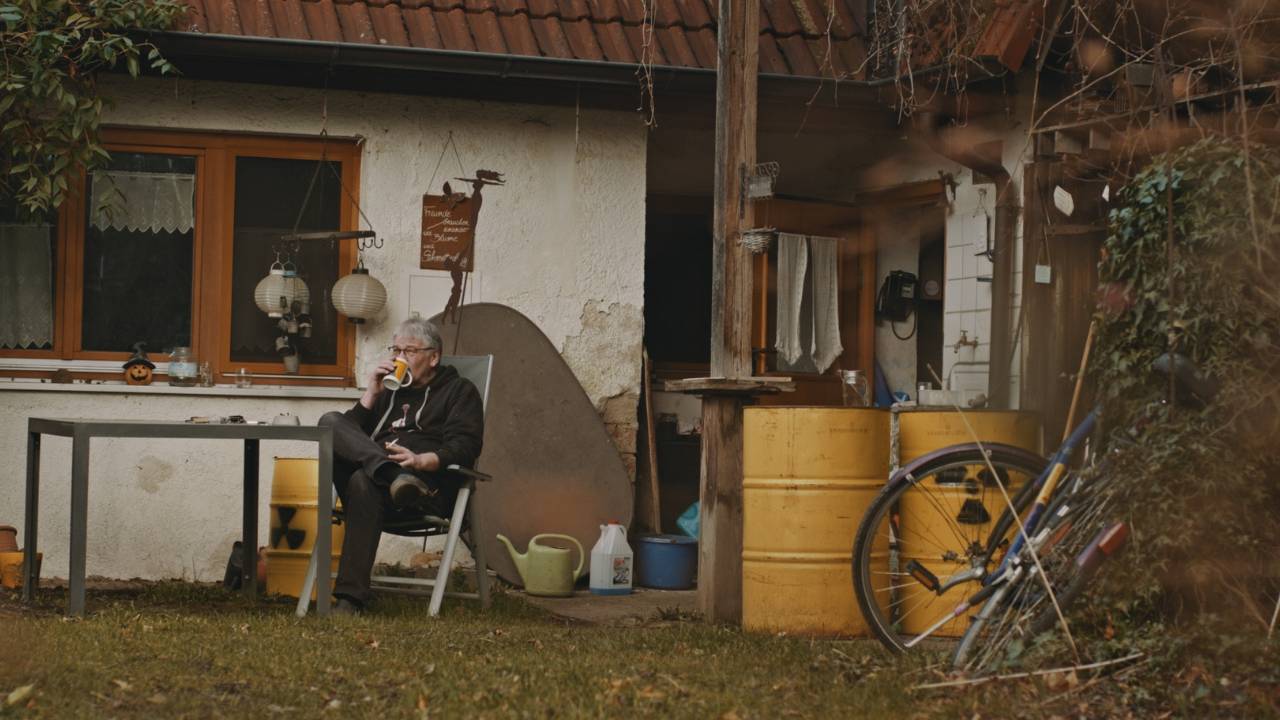
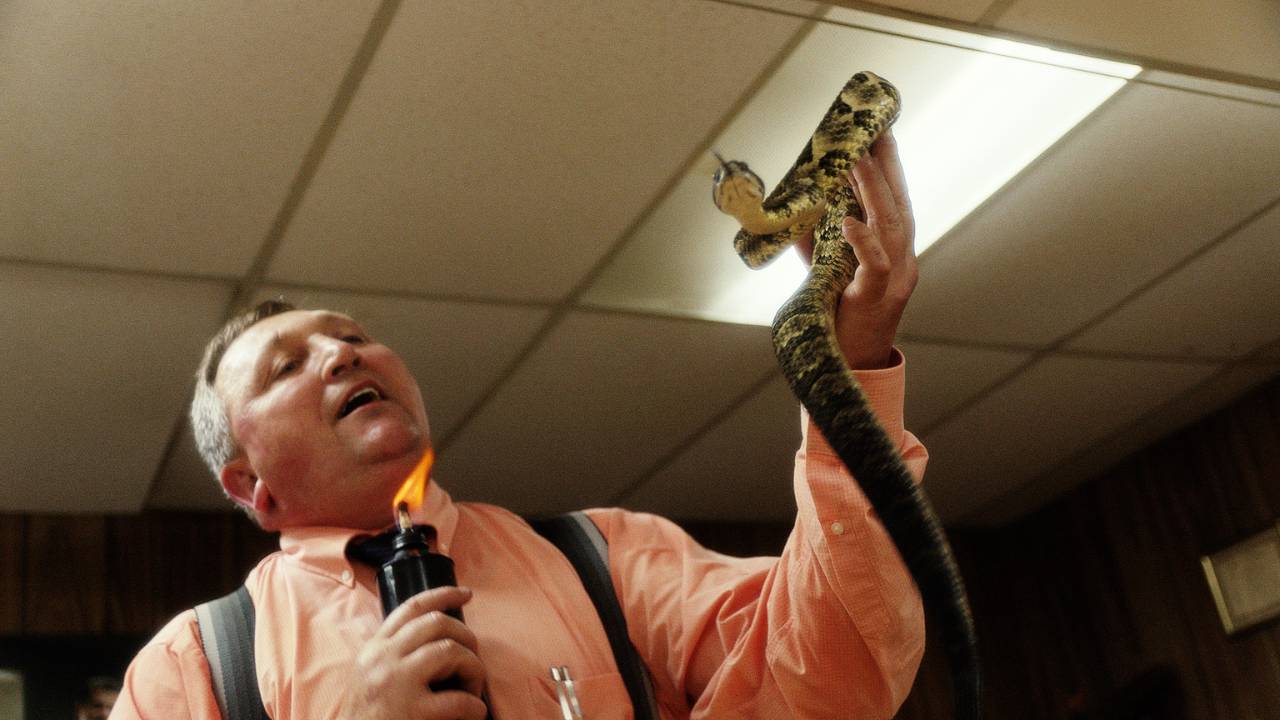
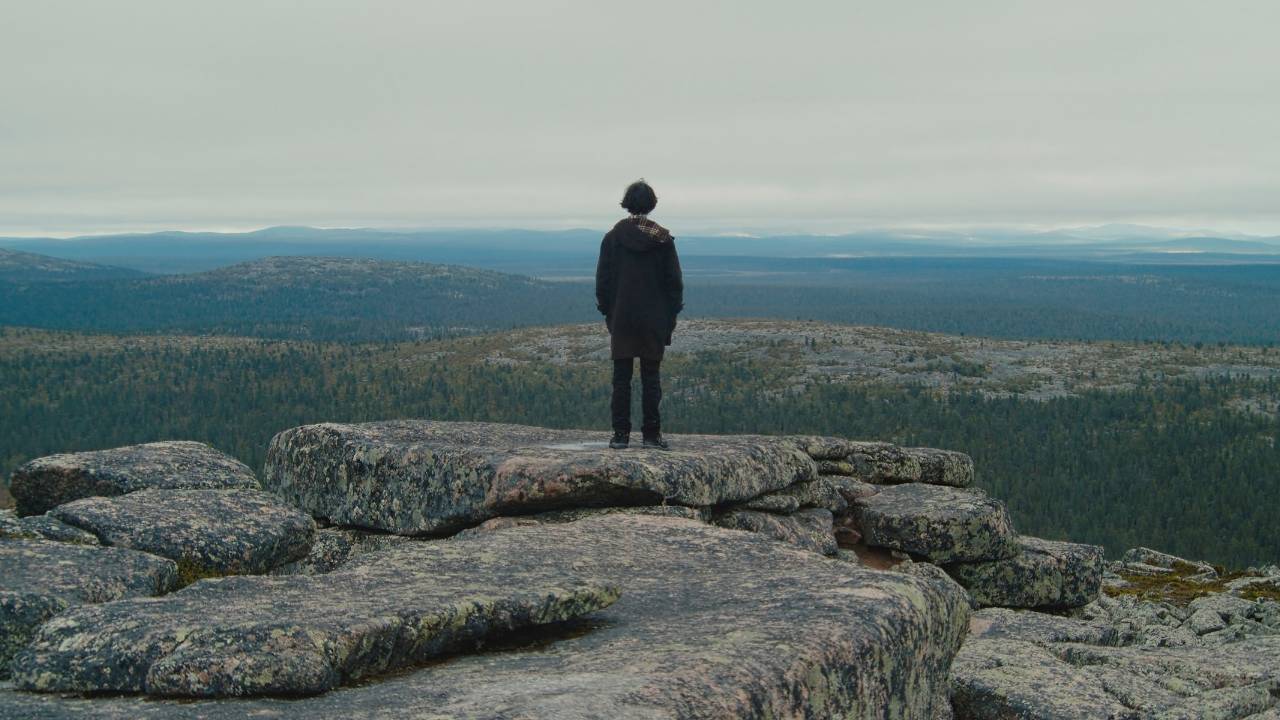
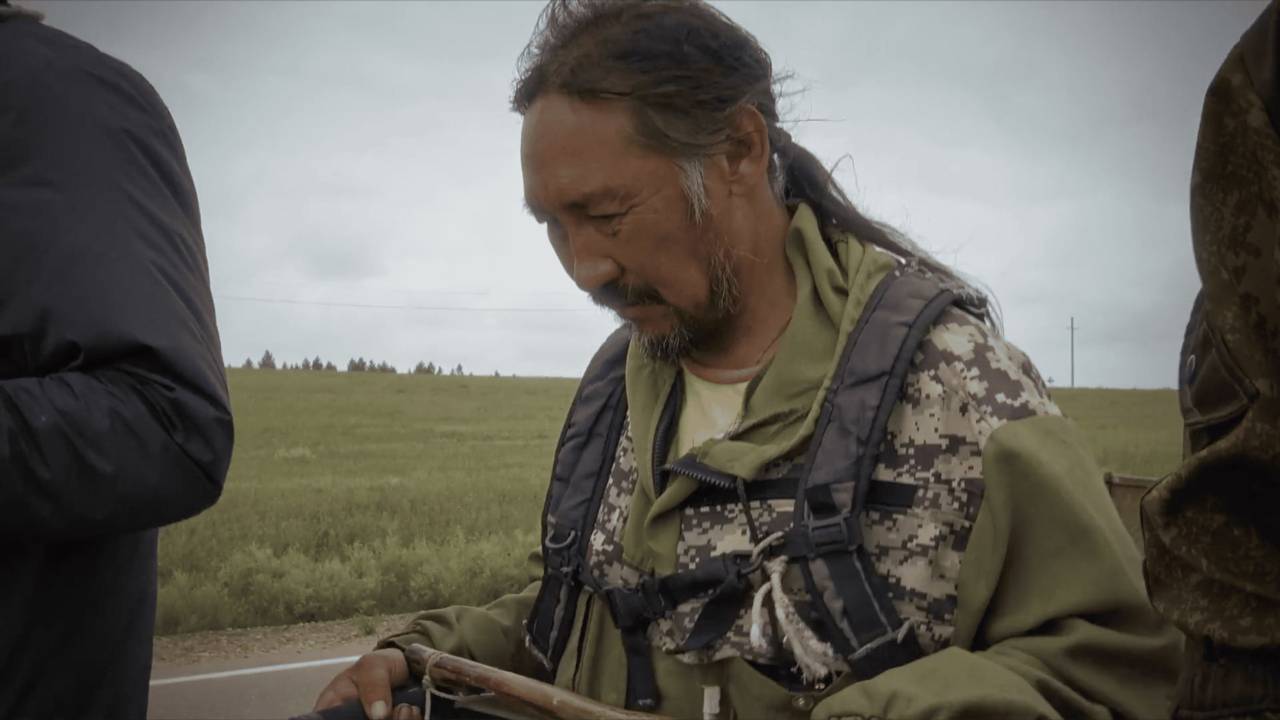
The common denominator of these markedly different stories is the fusion of powerlessness and rage, which sometimes becomes the fuel for collective action, whilst at other times take forms bordering on the absurd – like in the documentary A Shaman’s Tale by Beata and Mihail Bashkirov. Contemporary Russia requires an exorcist. Aleksandr Gabyshev considers himself precisely that: a man who set out on foot from Yakutia to Moscow to liberate the country from Putin through shamanic rituals. The film presents the surreal everyday reality of a nation mired in hopelessness, lawlessness, and superstition. Rituals are also the centrepiece of the terrifying documentary Taking Up Serpents. Director Matthias Lawetzky portrays members of a religious community from the state of Virginia. These practising evangelicals perform a dangerous ritual involving venomous snakes, believing it’s the way to vanquish Satan. This is a film for people with strong nerves and stomachs. By contrast, the documentary D is for Distance may provide moments of genuine emotion. What connects memory loss, William S. Burroughs, post-war CIA espionage operations, and contemporary struggles with a soulless healthcare system? All these elements converge in a creative yet deeply personal essay by Christopher Petit and Emma Matthews.
Body
The documentaries collected in the Body section explore corporeality in myriad ways: naturalistically, not unlike a body horror; lightly; or with considerable emotional baggage. The universal cult of the smooth face is not always, nor everywhere, what it appears to be, whilst in a lingerie boutique, it’s markedly easier to bare one’s heart. The former concern is addressed in Frown Gone Mad by Omar Mismar. The closer the war gets, the better the business becomes – such are the observations of the owner of a beauty salon in Beirut specialising in facial injections. Without holding any punches, operating primarily through close-ups, the film depicts beauty procedures performed with bombs falling in the backdrop. Meanwhile, we meet the protagonists of Full Support by Michal Cohen and Hedva Goldschmidt in a corsetière. Here, it’s about something far more significant than just fitting a bra. Customers both young and mature visit this Jaffa-based shop – Jewish and Arab women, those who have undergone mastectomies and plastic surgery, cisgender and transgender women alike. And the bra fitter becomes, for a moment, their friend and confidante. The protagonist of this section’s final film once again chooses to become a surrogate mother to secure a better future for her adolescent daughter. In the documentary 9-Month Contract, director Ketevan Vashagashvili reveals the challenges her protagonist must face in Georgia – from legal complications to health concerns. How long will she manage to conceal her pregnancy?
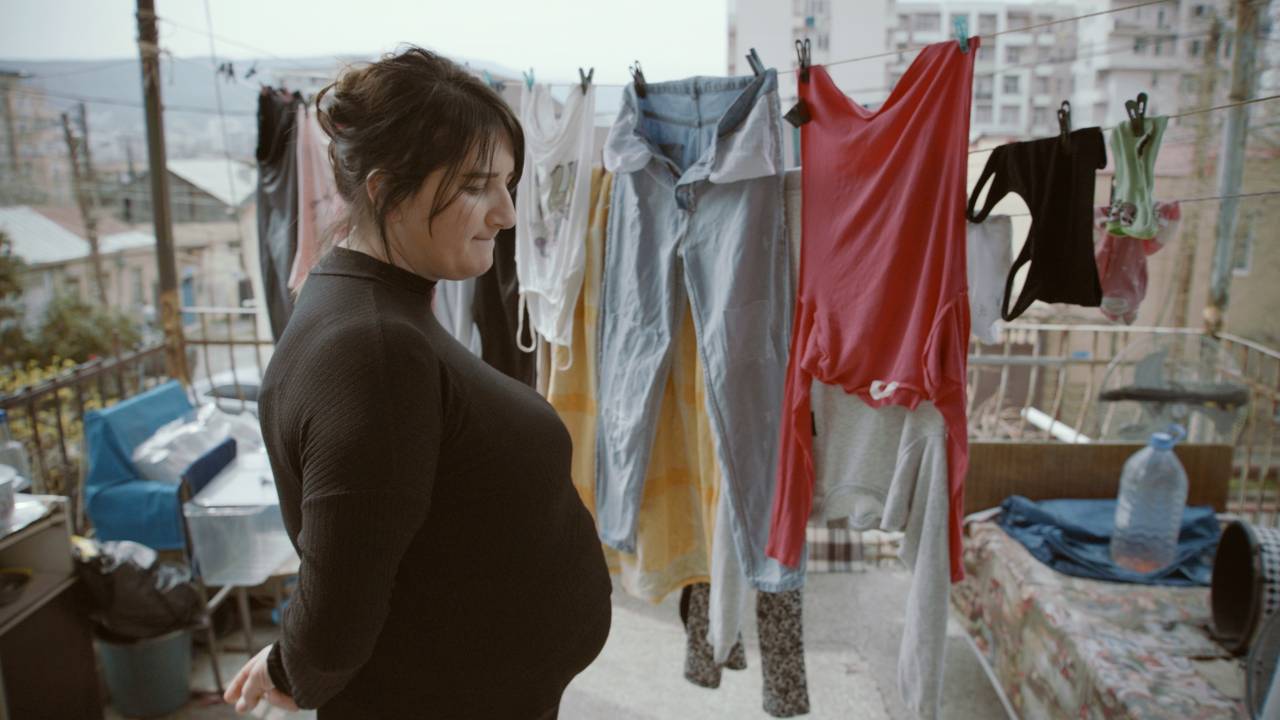
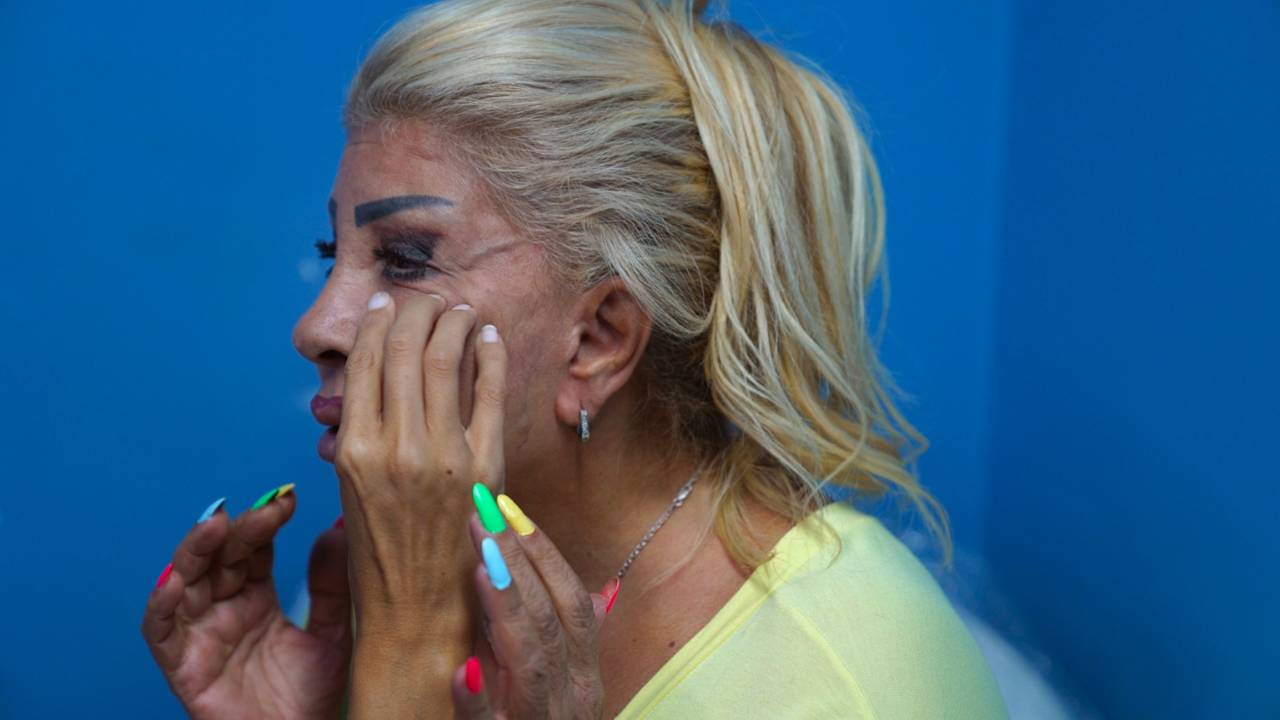
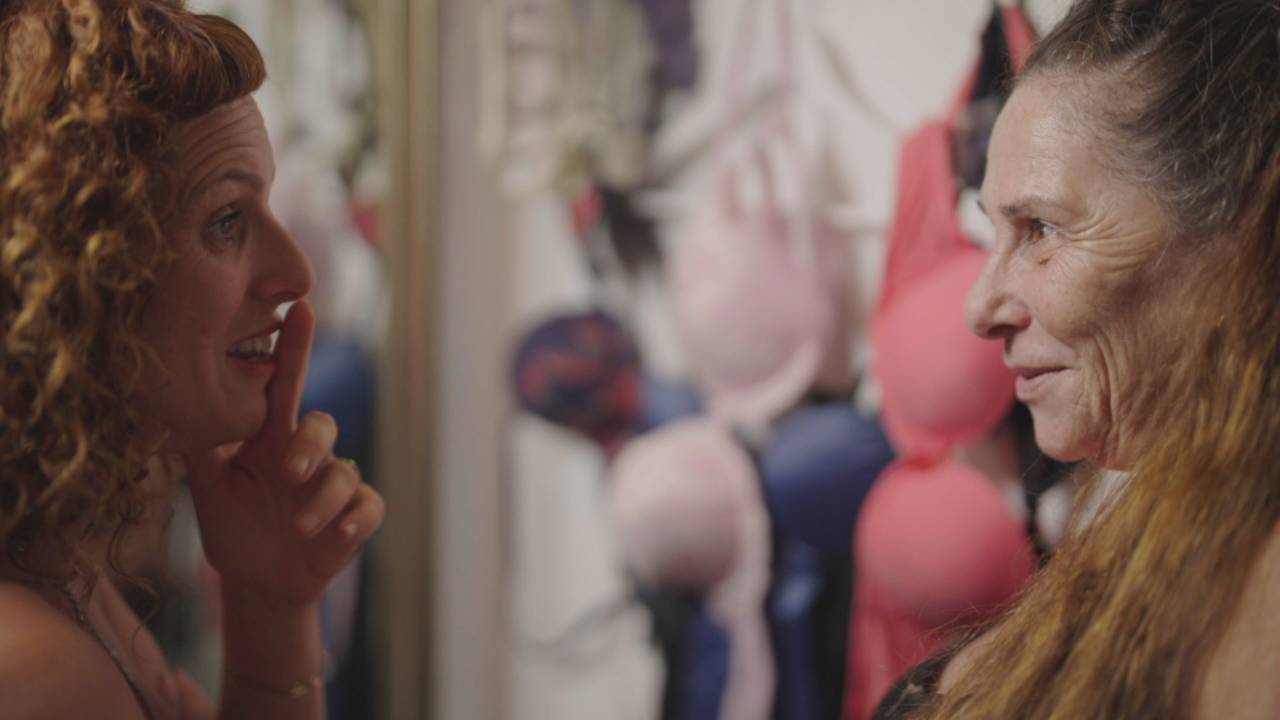
Family Revolutions
Every home harbours different secrets, and each family has its own particular dynamics. The protagonists of films featured in the Family Revolutions section must confront their inheritance. For some, this means an old family estate and a definitive farewell to their old life. For others, the challenge lies in rigid customs and laws that make women second-class human beings. Some discover that their family, while fulfilling its basic functions, is a fiction – or even a prison. All of them, regardless of the culture in which they were brought up, are now standing at the threshold of a new chapter in their lives.
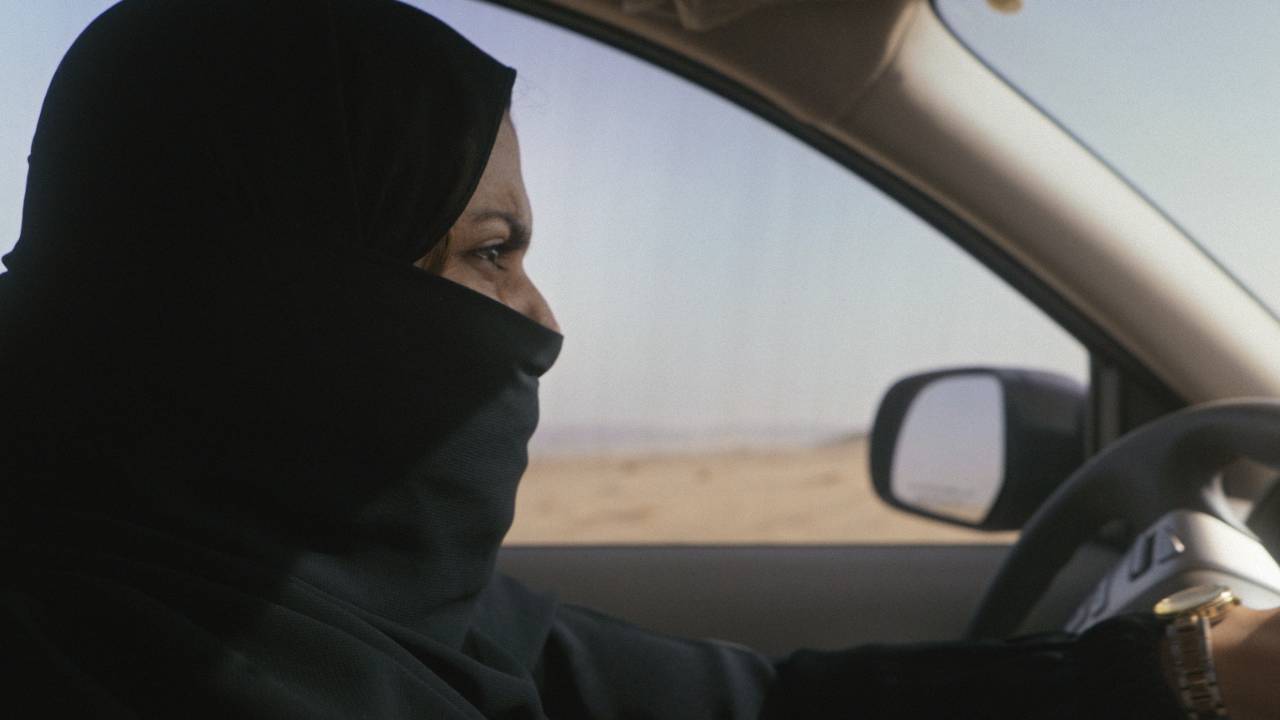
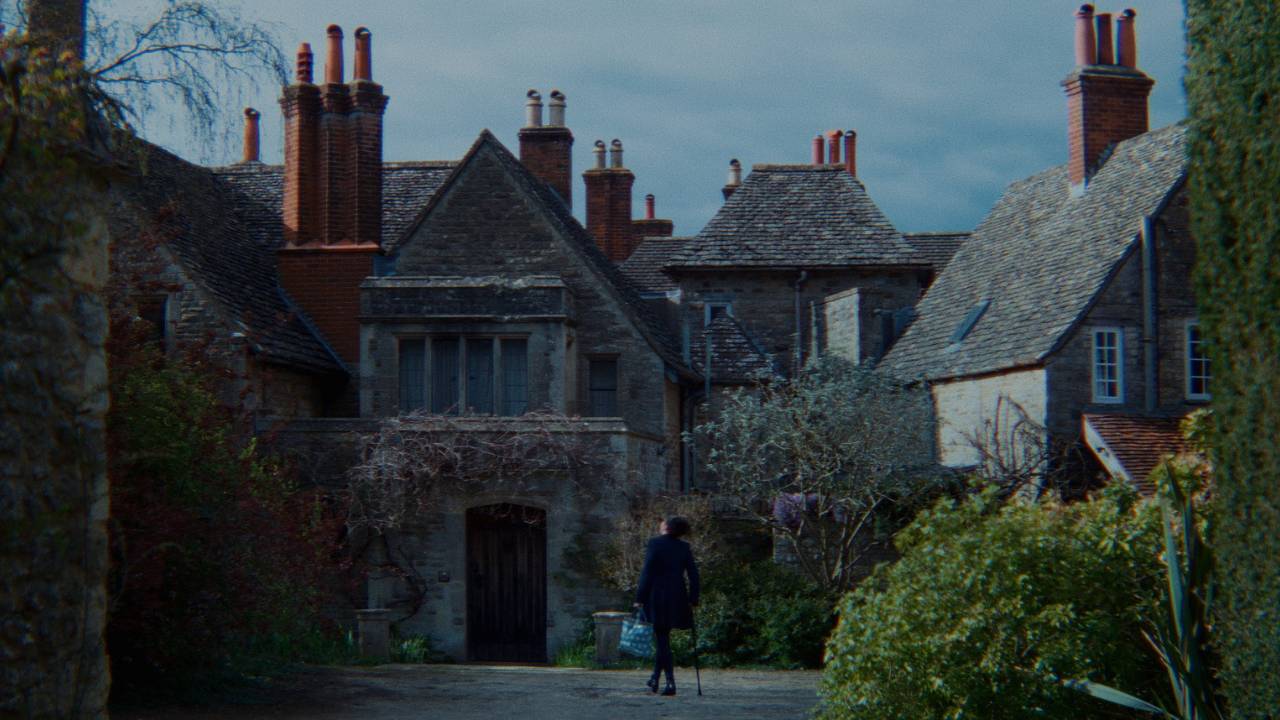
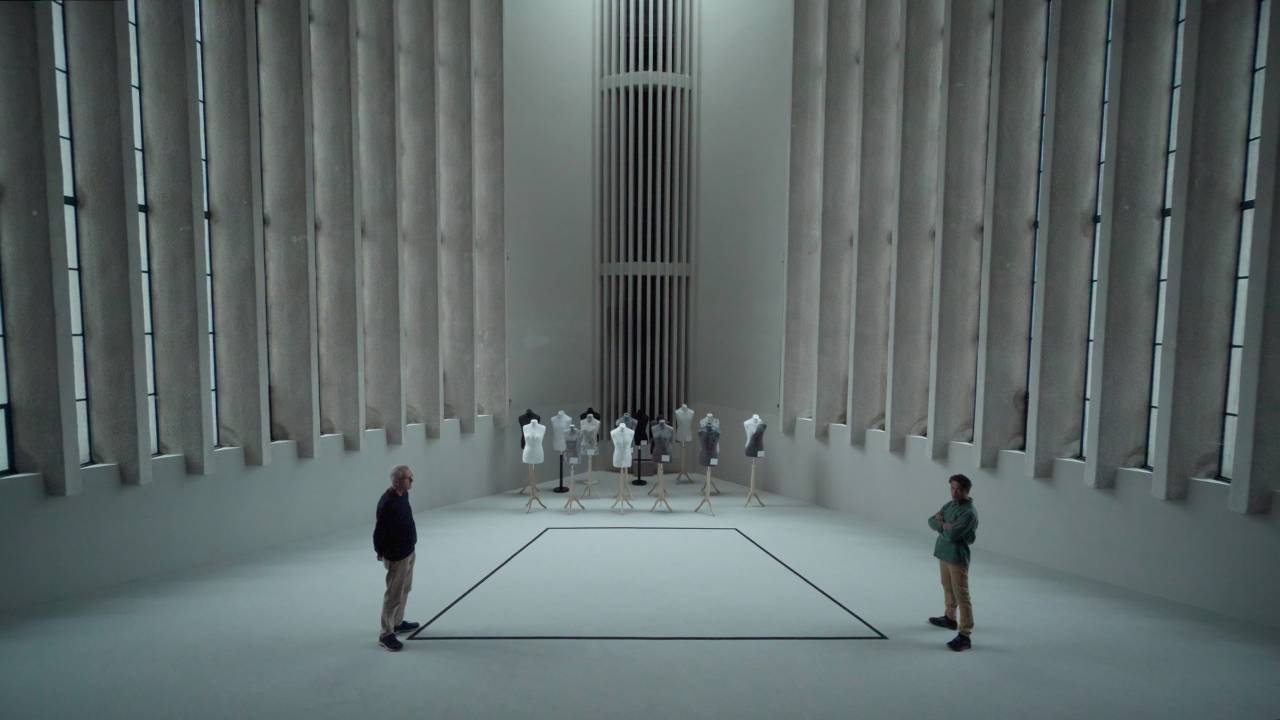
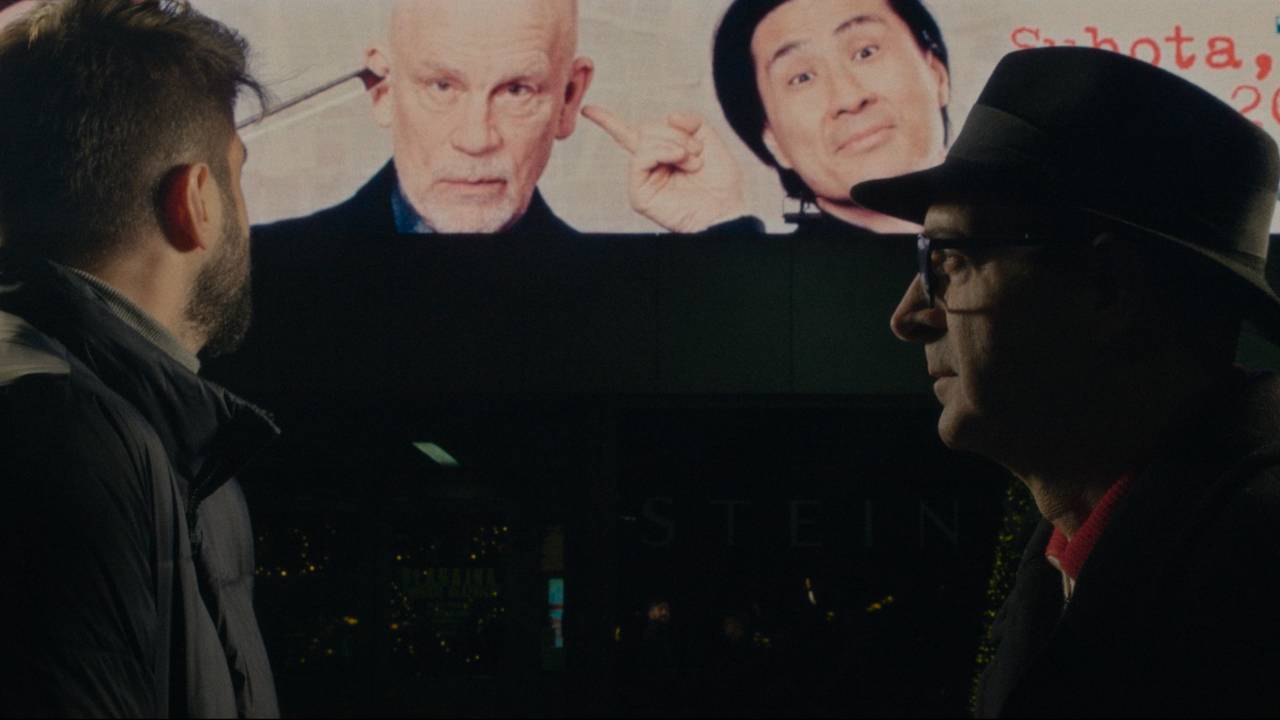
The titular heroine of the documentary Azza works as a driving instructor in a country where, until recently, women were forbidden from driving cars. Yet she remains victim to another Saudi law: her husband assumed custody of their children after the divorce. The protagonist of Stefanie Brockhaus’s film attempts to fight for herself and embarks upon a journey into the desert. The film Child of Their Time tells of the reverse situation – here, it is the adult child who fights for themselves. In the 1970s, numerous Dutch families adopted children from Indonesia. Tim is one of them. His adoptive parents had good intentions, yet something went awry. Today, the protagonist resents his father for bringing him to Europe. We witness a family psychodrama recorded by the protagonist’s brother, the film’s director Huibert van Wijk. Meanwhile, in Being Related to John Malkovich, Luka Mavretic chronicles how father and son, both poets, embark upon a journey through family memories and legends to discover the truth about themselves and their relationship. Pursuing a supposed kinship with the Hollywood star, they confront a past that might alter their future, crafting an intimate tale of memory, identity, and the delicate bonds between loved ones. As part of the UK/Poland Season, the festival is going to screen Where Dragons Live. The documentary presents an intimate and enchanting portrait of childhood fears, imagination, and the enduring power of family myths and artefacts that shape our lives. Alongside director Suzanne Raes, we follow the Impey siblings as they prepare their family home for sale.
Afterimages
In the films within Afterimages, we return to images from the past. Sometimes this proves an exceedingly painful journey – like when one must reckon with Polish history, falsified for entire decades. Or when an expedition transforms into an investigation aimed at bringing an Iranian war criminal before a Swedish court. There is also the tale of a woman who, despite having a turbulent life marked by the twists and turns of the twentieth century, made her mark in history. In each of these instances, the past demands fresh interpretation.
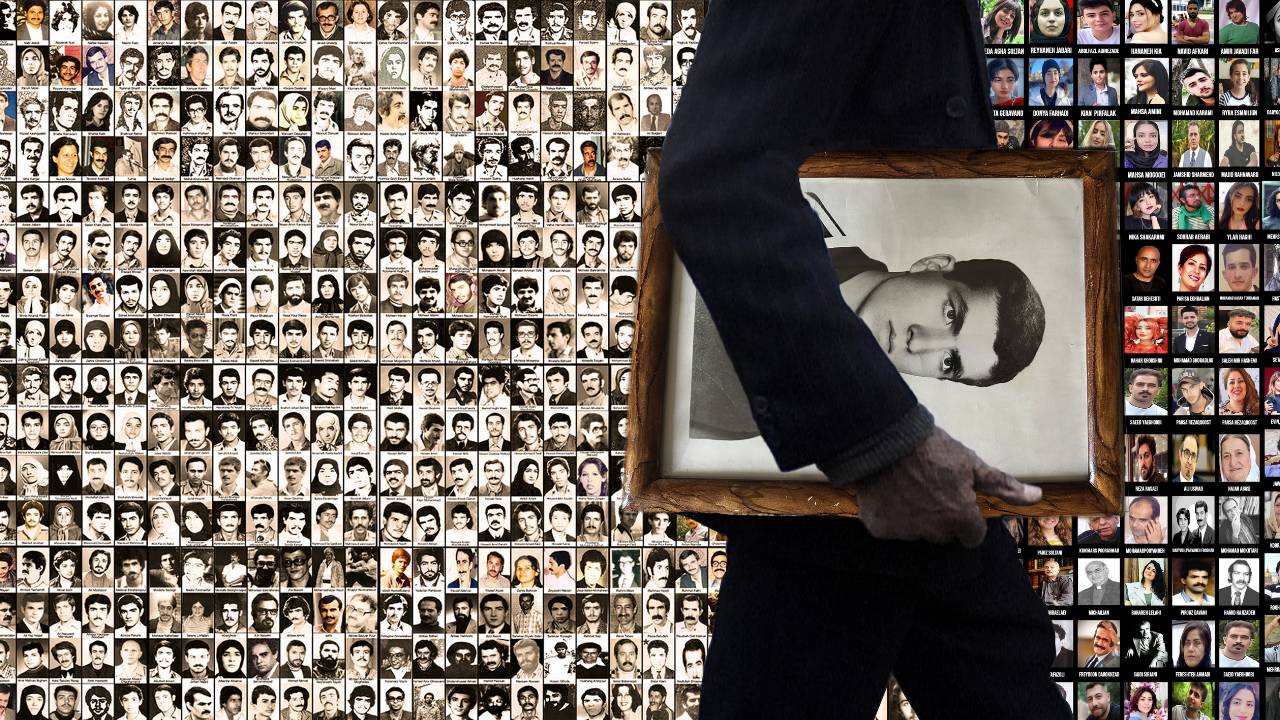

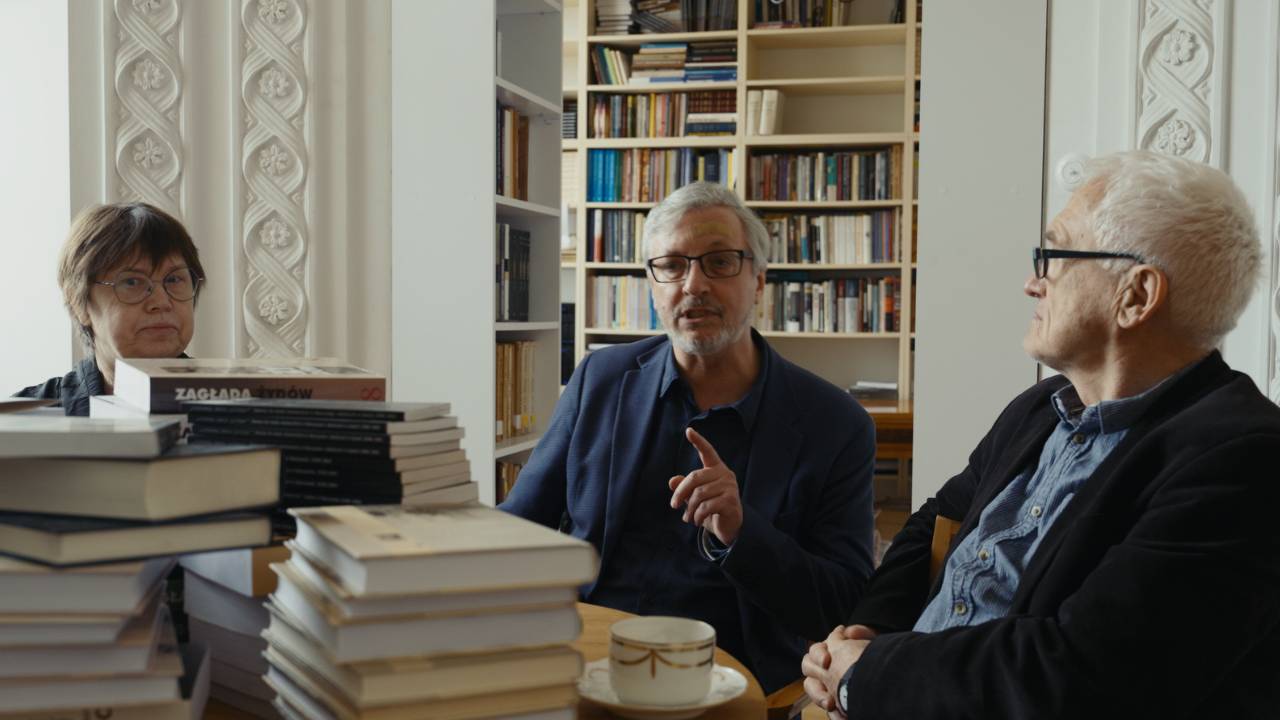
Today, her painting has been rediscovered worldwide and continues to inspire creators across various disciplines. No less fascinating than the paintings themselves is the biography of this Warsaw-born artist. The True Story of Tamara de Lempicka & The Art of Survival by Julie Rubio pays homage to a painter who boldly overcame the boundaries imposed upon women in art. The artist’s purported Jewish roots connect with Joanna Grudzińska’s film Poland versus History. The 1941 pogrom in Jedwabne remained a blank page in Polish history for considerable time. It wasn’t until Jan Tomasz Gross’s book Neighbors: The Destruction of the Jewish Community in Jedwabne, Poland that the debate began regarding Polish-Jewish relations during the occupation. The film demonstrates how this subject divided Poles and became appropriated by historical politics. Meanwhile, Surviving the Death Committee is a film that plays like a gripping thriller, and at moments resembles a courtroom drama. Before our eyes unfolds a complex operation aimed at capturing and prosecuting a man complicit in the massacre of thousands of Iranian political prisoners in the 1980s.
On the Edge:
- D is for Distance, dir. Christopher Petit, Emma Matthews, Finland, 88’, 2025
- Taking Up Serpents, dir. Matthias Lawetzky, Germany, USA, 90’, 2025
- Fission, reż. João Pedro Prado, Anton Yaremchuk, Poland, Germany, 75’, 2025
- A Shaman’s Tale, dir. Beata Bashkirova, Mihail Bashkirov, France, Czechia, USA, 75’, 2024
Body:
- Frown Gone Mad, dir. Omar Mismar, Lebanon, 71’, 2024
- Full Support, dir. Michal Cohen, Israel, 68’, 2024
- 9-Month Contract, dir. Ketevan Vashagashvili, Georgia, Bulgaria, Germany, 77’, 2025
Family Revolutions:
- Azza, dir. Stefanie Brockhaus, Germany, 89’, 2025
- Being Related to John Malkovich, dir. Luka Mavretić, Bulgaria, Croatia, Italy, 73’, 2024
- Child of Their Time, dir. Huibert van Wijk, Netherlands, 55’, 2024
- Where Dragons Live, dir. Suzanne Raes, Netherlands, United Kingdom, Northern Ireland, 81’, 2024
Afterimages:
- Poland versus History, dir. Joanna Grudzińska, Poland, France, 70′, 2025
- The True Story of Tamara de Lempicka & The Art of Survival, dir. Julie Rubio, USA. 96’, 2024
- Surviving the Death Committee, dir. Nima Sarvestani, Sweden, 85’, 2025
Explore the insider programme of the 65th Krakow Film Festival!
The Krakow Film Festival is on the exclusive list of film events qualifying for the Academy Awards® in short film categories (fiction, animation, documentary) and feature-length documentary, the European Film Awards in the same categories, and serves as a qualifying event for the BAFTA Awards.
The Krakow Film Festival is organised with financial support from the City of Krakow, the Ministry of Culture and National Heritage, the Polish Film Institute, and the Creative Europe MEDIA Programme. The Polish Filmmakers Association serves as co-organiser.
The KFF at the Barbican is co-organised by the National Cultural Centre as part of the cultural programme of the Polish Presidency of the Council of the European Union 2025.
The 65th Krakow Film Festival will be held in cinemas from 25 May to 1 June 2025 and online on KFF VOD from 30 May to 15 June 2025.